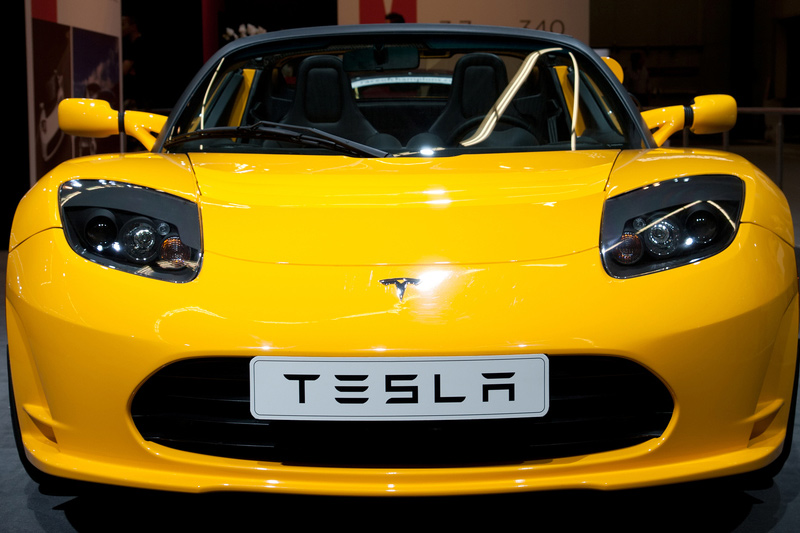By Angelo Young - A week after New Jersey joined four other states in blocking efforts by Tesla Motors Inc. (NASDAQ:TSLA) to establish its own dealerships, an Arizona state senate committee approved a bill specifically crafted to welcome Tesla’s retail aspirations while excluding all other auto manufacturers.
Here are the conditions a manufacturer must meet in order to sell directly to buyers in brick-and-mortar dealerships under the bill:
“[HB 2123] Authorizes a factory to sell, lease or provide, or offer to sell, lease or provide, a vehicle or product, service or financing to any retail consumer if the factory: a) only manufactures electric vehicles; and b) has a service center in Arizona to handle repair, warranty or recall issues regarding the vehicles.”
Clearly the bill is hand-crafted for Tesla since it’s the only currently viable automaker that only produces electric vehicles for the mass market. It’s this same advantage that helped the company rake in tens of millions of dollars last year under California’s Zero Emission Vehicle program by selling its allotment of ZEV credits to makers of cars that burn gasoline.
If the bill passes, Arizona would switch sides in the Tesla sales ban that pits the nation’s auto dealership system, whose advocates claim manufacturers are not as capable retailers as independent businesses, against Tesla supporters who argue that restrictions barring Tesla from controlling its own retail operations are anathema to free market capitalism.

In states where the ban against manufactures’ direct-sales are in place Tesla is only allowed to operate so-called “galleries” where Tesla representatives are barred from discussing the vehicles’ pricing options (could this be a First Amendment issue?) or offer any other help in making purchasing decisions. Customers are barred from test driving the vehicles, too. If you want a Model S in these states, you have to order it online and have it delivered, complicating the purchasing process.
Tesla has won battles against the ban in Massachusetts, where in January the automaker won a lawsuit against dealers there, and Minnesota and North Carolina, where bills to bar manufacturers from direct-sales failed to pass the statehouses. Currently Virginia, Maryland, Arizona, New Jersey and Texas have instituted a ban, and dealers are pushing for similar prohibitions in Ohio and New York.
Tesla CEO Elon Musk told Automotive News last year he would rather duke this out in federal court rather than fight little battles in the states. And last week Musk lambasted New Jersey lawmakers for bowing to dealership-network interests, and he suggested dealers fear electric cars will harm their profits because they don’t require as much servicing as internal-combustion engine vehicles.
The Arizona Senate committee vote may have ulterior motives, as this map Tesla posted in late February suggests:

Arizona is one of four states vying for Tesla’s planned so-called “gigafactory” to produce lithium-ion batteries it currently buys from Osaka-based Panasonic Corp. (TYO:6752). The company sole product, the Model S sedan, currently uses about 7,000 Li-ion 18650 batteries, which resemble standard AA batteries. Last month the company floated $2 billion in convertible bonds to raise capital to fund the factory, which Tesla would like to have online by 2020 for an estimated total cost of between $4 and $5 billion.
Texas, where Musk is considering a commercial orbit launch site for his space transport services company Space Exploration Technologies Corporation (SpaceX), could also be changing its tune. State Rep. Jason Villalba (R-Dallas) wrote a letter to Musk dated March 3 selling his state as a “fertile and productive ecosystem” for Tesla to build its battery factory.
And like Arizona, Texas has a bill (HB 3351) that would allow makers of “only all electric-powered or all battery-powered motor vehicles” to set up retail operations in the state. With Texas trying to woo Musk for a massive factory and a space-launch vehicle, the bill’s chances of getting passed might have increased since its introduction a year ago.
